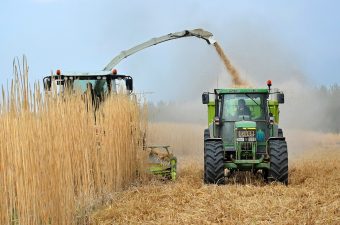
Brazil is a frontrunner in clean energy transitions: among the world’s largest economies, it boasts the lowest share of fossil fuels in its energy mix. Holding the G20 Presidency in 2024, Brazil has an opportunity to lead the global energy transition agenda, drawing on its renewables-based power system and large biofuel sector. It will also host the COP30 climate change conference next year in Belém, a gateway city to the Amazon region, which will put Brazil’s clean energy initiatives firmly under the international spotlight.
Brazil has overcome a myriad of challenges to become a clean energy leader. Over several decades, it confronted delays in major projects, blackouts and a series of economic setbacks driven by domestic and international factors. We explore these challenges below, as they bring valuable insights for global energy transitions, and explore potential avenues to speed up progress.
Diversifying energy sources and targeting resilience
Ample water resources and landmark projects like the Itaipu Dam provided Brazil with a robust foundation in hydropower generation, but also left its electricity supply vulnerable to a changing climate. In 2001, low rainfall alongside limited investment in generation and transmission led to a series of blackouts, resulting in rationing and other policy interventions to reduce electricity demand.
In the following years, Brazil worked to improve and diversify electricity sources, targeting investment in wind, solar, and biomass. There was also a focus on expanding and modernising the grid to increase reliability, reduce losses and improve the balance between supply and demand to ensure the smooth integration of variable power sources.
Regulatory interventions supported the participation of independent power producers and a suite of policy instruments – including tax incentives, bilateral agreements and renewable energy auctions – galvanised investments in clean energy. From 2000 to 2022, the share of electricity from hydro in the power mix fell by a third to just under 65 per cent, but the share of renewables overall remained steady at around 90 per cent.
More:
- ISLANDS NEED RESILIENT POWER SYSTEMS MORE THAN EVER. CLEAN ENERGY CAN DELIVER
- INVESTMENT IN CLEAN ENERGY THIS YEAR IS SET TO BE TWICE THE AMOUNT GOING TO FOSSIL FUELS
- EU SUPPORT FOR GREEN TRANSITION PROJECTS IN SERBIA
Driving innovation by tapping into clean domestic resources
Brazil is a global pioneer in biofuel production, successfully combining biofuel mandates, financial incentives and sustainability requirements to expand secure and affordable biofuel supply. The country was also the main driver of global biofuel demand up to the early 2000’s, when the United States, India and other countries followed suit.

Today, the transport sector is the main source of fossil fuel demand in Brazil, which relies heavily on road transport. More than 90 per cent of the demand for energy in the country’s transport sector comes from road transport, this compares to a global average of around 75 per cent. Ethanol blending mandates began after the 1973 oil crisis with the Pró Álcool programme, which aimed to reduce oil imports by leveraging Brazil’s agricultural strength. Blending mandates have increased gradually over the years, reaching a 27 per cent requirement for ethanol and 12 per cent for biodiesel on a volume basis. And they are set to grow further, with a 15 per cent target for biodiesel by 2026.
Decades of investment in research and innovation made this possible. Flex-fuel vehicles, which can run on gasoline or ethanol, were developed in the 1990s and now comprise almost 90 per cent of Brazil’s light-duty vehicle fleet. The country is also a global leader in advanced biofuels (produced from waste, residues and non-food energy crops), using agricultural residues to expand supply without increasing land use.
Launched in 2024, the New Industry Brazil policy calls for a focus on sustainability and innovation. One of its targets is to increase the share of biofuels by 50 per cent in the transport energy mix by 2033. This follows the launch of the G20’s Global Biofuel Alliance in 2023 with the aim of boosting supply and demand for biofuels. Brazil is also developing a Future Fuel Program to increase ethanol, biodiesel and sustainable aviation fuel blending, as well as to set frameworks for other low emissions fuels.
Read the entire text here.
Source: IEA

